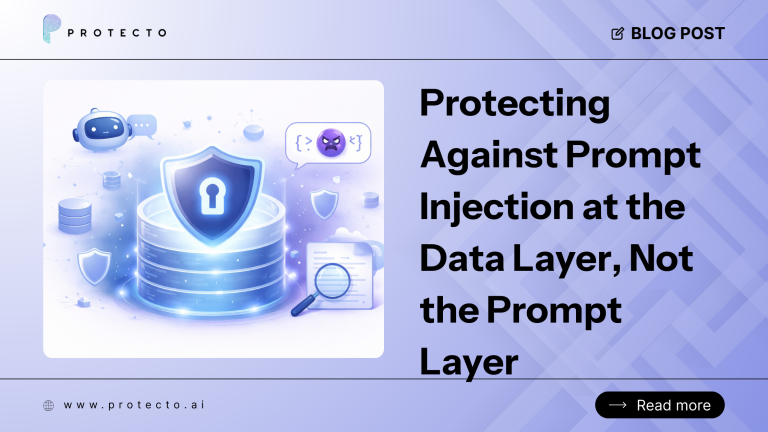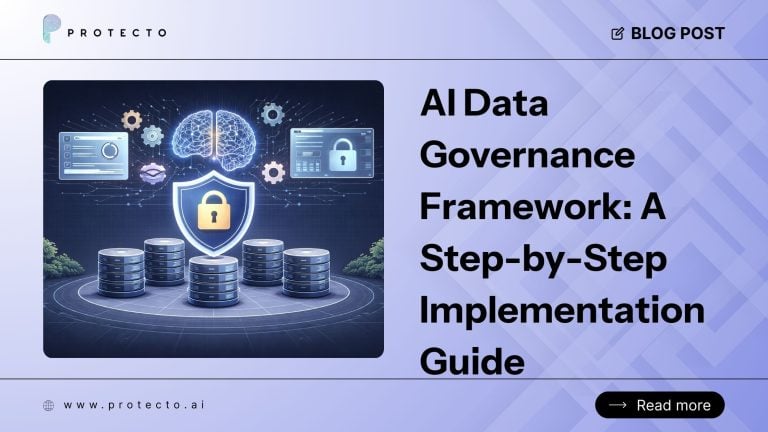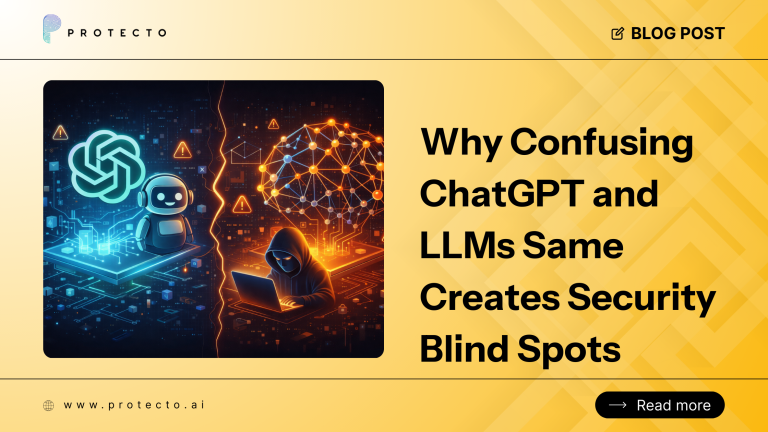In today’s digital age, protecting personal information has become more critical than ever. With the ever-increasing amounts of data being collected and stored by companies and organizations, it is crucial to understand the legal frameworks and best practices for safeguarding sensitive information. In the United States, there are various data privacy regulations in place to help protect individuals’ personal information.
This guide will provide an in-depth look at these regulations and how they impact organizations. It is essential for organizations to understand these various regulations and how they apply to their operations. By complying with these laws, organizations can protect personal information and avoid potential legal issues.
Understanding the Key Data Privacy Regulations in the US
In the United States, there is no single principal data protection legislation. Instead, there is a mix of federal and state laws that serve to protect personal data. At the federal level, several laws regulate specific types of data or industries. These include laws such as HIPAA (Health Insurance Portability and Accountability Act), which governs health information; GLBA (Gramm-Leach-Bliley Act), which regulates financial institutions; and FCRA (Fair Credit Reporting Act), which regulates credit reporting agencies.
In addition to federal laws, several states have enacted data privacy regulations. California paved the way by passing a comprehensive data privacy law with its CCPA (California Consumer Privacy Act). Other states, such as Colorado, Connecticut, Utah, and Virginia, have also passed data privacy laws.
Federal Data Privacy Regulations
While not many, quite a few data privacy laws operate at a federal level and are aimed squarely at specific areas of operations and use cases.
The Computer Fraud and Abuse Act (CFAA)
The Computer Fraud and Abuse Act (CFAA) is a United States cybersecurity bill enacted in 1986 to amend existing computer fraud law. The law prohibits accessing a computer without proper authorization. Originally designed to protect computer systems operated by the US government and some financial institutions, its scope has expanded after several amendments.
The CFAA makes it a crime for anyone to access without authorization a computer or computer system used by a financial institution, US government agency, or any organization or individual involved in interstate or foreign commerce or communication. The law has been regularly amended to cover a broad range of conduct much beyond its original intent.
The Federal Trade Commission Act (FTC Act)
The Federal Trade Commission Act (FTC Act) is another critical federal data privacy regulation. Enforced by the Federal Trade Commission (FTC), this act gives the FTC broad authority to protect consumers against unfair or deceptive practices. This includes rules related to data privacy and security.
Under the FTC Act, companies must have reasonable security measures to protect consumer data. They must also provide clear and conspicuous notice about their data collection practices and obtain consent from consumers before collecting private information. There are also safeguards in place that prevent companies from providing any misinformation or misrepresentation about how they choose to handle customer data.
The Gramm-Leach-Bliley Act (GLBA)
The Gramm-Leach-Bliley Act (GLBA) is another federal regulation enforced by the FTC. This act regulates financial institutions and requires them to protect consumer financial information. Under GLBA, financial institutions must provide customers with a privacy notice that explains their information-sharing practices.
The GLBA covers banks, insurance companies, and other entities like companies that offer loans or financial advice. The Safeguards Rule implemented under GLBA outlines the necessary levels of protection these entities must maintain for all private data.
In addition, GLBA requires financial institutions to have a written information security plan that outlines how they will protect customer data. This includes implementing administrative, technical, and physical safety nets to protect the security and confidentiality of customer information.
The Fair Credit Reporting Act (FCRA)
The Fair Credit Reporting Act (FCRA) is another critical federal data privacy regulation. This act regulates credit reporting agencies and requires them to follow specific procedures when collecting, maintaining, and disseminating consumer credit information.
Under FCRA, consumers have several rights related to their credit reports. These include the right to access their credit report once per year for free, dispute inaccurate information on their credit report, place a fraud alert on their credit report if they are a victim of identity theft, and opt out of having their credit report used for pre-screened offers of credit or insurance.
Health Insurance Portability and Accountability Act (HIPAA)
This is, without question, one of the most vital legislations related to data privacy in the US. In essence, this protects any health or medical information from being misused or shared without consent by medical institutions. The act is the primary source of protection for doctor-patient confidentiality and related privileged information and prevents any non-consensual sharing of data with third parties.
HIPAA also makes it mandatory for institutions to immediately notify all involved parties in the event of a data breach. HIPAA regulations are known to be very strict, and violations can result in severe consequences. Any use case, including far-reaching ones like cloud storage services and mobile apps, must comply with HIPAA if they process or store any personally identifiable data.
State Data Privacy Regulations
States usually have more leeway while devising their own data privacy regulations. For this reason, we often get to see more forward-thinking measures in state laws. Only a few states in the US currently have their own data privacy regulations, but more states can be expected to join the bandwagon shortly.
California
The California Consumer Privacy Act (CCPA) is a state-wide data privacy law enacted in 2018. It gives consumers more control over the personal information that businesses collect about them. This includes the right to know what personal information is being collected, the right to request that their personal information be deleted, and the right to opt out of the sale of their data.
In November 2020, California approved Proposition 24, the California Privacy Rights Act (CPRA), amending the CCPA and adding additional privacy protections. The CPRA strengthens the existing framework in key areas. It substantially increases the rights of consumers and regulates businesses that handle personal information.
As of January 1st, 2023, consumers have new rights in addition to those provided by CCPA. These include the right to correct inaccurate personal information and curtail the use and disclosure of personal information. The CPRA also established a new agency called the California Privacy Protection Agency, which will enforce these laws.
Interesting Read: How Does CCPA Affect Healthcare Privacy?
Colorado
Colorado Governor Jared Polis signed the Colorado Privacy Act, also known as ColoPA or SB21-190, on July 8th, 2021. It will go into effect on July 1st, 2023. The act aims at protecting the fundamental right to privacy of Colorado residents and requires companies to protect user data while continuing to conduct business.
ColoPA follows in the footsteps of CCPA while going above and beyond in some areas of protection. For example, under ColoPA, customers can request access to not just the narrow definition of personal data but any data that a company might have collected. It also requires entities to obtain special permission before processing personally identifiable data that can place specific individuals into protected categories.
Connecticut
The Connecticut Personal Data Privacy and Online Monitoring Act (CTDPA) was ratified into law on May 10th, 2022, by Governor Ned Lamont. It comes with a universal opt-out mechanism for consumers and gives them the right to request access to collected data. Consumers can also put in requests for data correction and deletion.
The CTDPA is set to come into effect from July 2023.
Utah
The Utah Consumer Privacy Act (UCPA) was signed into law on March 24th, 2022. While it derives most of its principles from the GDPR, there are certain areas where it is laxer than other states. For example, personal data protections only apply to consumer data and no other kinds of personally identifiable information. Similarly, it does not pose a legal requirement for regular data protection audits.
The UCPA is a new law passed by the Utah State Legislature as Senate Bill 227, Consumer Privacy Act. The law will take effect on December 31st, 20233, giving businesses time to prepare for compliance. It is set to apply only to entities earning at least $25 million annually in revenues.
Virginia
Governor Ralph Northam signed the Virginia Consumer Data Protection Act (CDPA) on March 2nd, 2021. The Virginia regulations are similar to the CCPA in most aspects and ascribe the same obligations to all covered entities. This includes any entity that handles the personal data of at least 100,000 people every year or those that only handle the personal data of 25,000 people every year but derive half or more of their total revenue through the sale of that data.
Unlike the CCPA and the European GDPR, the CDPA uses a much more narrow and specific definition of what constitutes the sale of personal data. There is also no regulatory authority dedicated to enforcing these laws, unlike in California. Also, private citizens of Virginia are still not permitted by law to bring lawsuits against companies for violations of the CDPA.
Impact of Data Privacy Regulations on US Businesses
.jpg)
Data privacy regulations significantly impact businesses operating in the United States. Here are some ways in which these regulations affect businesses:
Increased Compliance Costs:
Businesses must invest in new technologies and processes to ensure compliance with data privacy regulations. This includes implementing new security measures, updating privacy policies and notices, and training employees on best practices for data protection.
Enhanced Consumer Trust:
Businesses can demonstrate their commitment to protecting consumer data by complying with data privacy regulations. This can build trust with customers and improve brand reputation.
Legal Liability:
Failure to comply with data privacy regulations can result in legal action and financial penalties. Businesses must take adequate steps to ensure they meet their legal obligations.
Competitive Advantage:
Businesses that prioritize data privacy can gain a competitive advantage over those that do not. By demonstrating their commitment to protecting consumer data, businesses can differentiate themselves from their competition and attract customers who value privacy.
Also Read: Compare DSARs Requirements in CCPA vs. GDPR
5 Challenges of Data Privacy Regulations in the US
Here are some critical challenges businesses in the US might have due to federal and state data privacy regulations.
Data Subject Rights
One of the challenges that businesses face when complying with data privacy regulations is managing data subject rights. These rights include the right to access personal data; request that it be corrected or deleted; opt out of having it sold or used for targeted advertising; and obtain a copy in a portable format. Businesses must have processes in place to respond to these requests promptly and accurately.
Proliferating Devices
Another challenge businesses face when complying with data privacy regulations is managing the proliferation of devices that collect and store personal data. This includes smartphones, tablets, laptops, and other connected devices. Businesses must ensure that they have appropriate security measures to protect personal data on these devices.
Increasing Maintenance Costs
Complying with data privacy regulations can also increase business maintenance costs. This includes the cost of implementing new security measures, updating privacy policies and notices, and training employees on data protection best practices. Businesses must budget for these costs when planning their compliance efforts.
Access Control Difficulties
Another challenge businesses face when complying with data privacy regulations is managing access control to personal data. This includes ensuring that only authorized individuals have access to personal data and that access is revoked when no longer needed. Businesses must have processes in place to manage access control effectively.
Getting Visibility Into All Your Data
Finally, one of the biggest challenges businesses face when complying with data privacy regulations is getting visibility into all their data. This includes knowing where personal data is stored; how it is being used; who has access to it; and how long it will be retained. Businesses must have processes in place to gain visibility into their data to ensure compliance with applicable regulations.
Ensuring Compliance with Data Privacy Regulations in the US
Ensuring compliance with data privacy regulations in the US can take time and effort for businesses. Here are some steps that companies can employ to ensure compliance:
Conduct a Data Inventory:
Conducting a data inventory is the first step in ensuring compliance with data privacy regulations. This involves identifying all the personal data that your business collects, stores, and processes. This includes data collected from customers, employees, and other sources.
Implement Appropriate Security Measures:
Once you have identified all the personal data your business collects, you must implement appropriate security measures to protect it. This includes using encryption to secure data in transit and at rest, implementing access controls to limit who can access personal data, and regularly testing your security measures to ensure they are effective.
Update Privacy Policies and Notices:
Businesses must also update their privacy policies and notices to reflect their data collection practices and comply with applicable regulations. They must provide clear and concise information about collecting, using, sharing, and protecting personal data.
Train Employees on Data Protection Best Practices:
Businesses must also train their employees on data protection best practices. This includes providing training on how to handle personal data securely, how to respond to requests from individuals exercising their rights under applicable regulations, and how to report any suspected breaches of personal data.
Monitor Compliance Regularly:
Finally, businesses must regularly monitor their compliance with data privacy regulations. This includes conducting regular audits of their data protection practices, reviewing their privacy policies and notices regularly, and staying up-to-date with changes in applicable laws.
Suggested Read: “What Does Cyber Insurance Cover? Does it Cover GDPR Fines?
How Protecto Can Help You Navigate Data Privacy Regulations
Data privacy regulations in the US provide essential protections for individuals and their personal information. Businesses operating in the US must comply with these regulations to avoid legal liability and build trust with customers. By understanding the critical federal and state-level data privacy regulations, implementing appropriate security measures, updating privacy policies and notices, training employees on data protection best practices, and monitoring compliance regularly, businesses can ensure that they are protecting personal information and complying with applicable laws.
Complying with applicable data privacy regulations can become simpler, faster, and more effective with expert help from Protecto. Our solutions can help your business quickly eliminate most existing and potential data protection and compliance risks. You can benefit from superior data visibility and quick, exhaustive privacy audits. Get in touch with us to schedule a consultation today.
Data Privacy Regulation FAQs
What kind of penalties can be applied to businesses that violate US regulations?
Several penalties can be applied to businesses that violate US data privacy regulations. For example, a financial institution can be fined up to $100,000 for each violation and an amount that goes up to one percent of the company’s assets. Employees can also be fined up to $10,000 individually for each violation. HIPAA violations can result in fines of up to 1.5 million dollars and criminal charges.
How does the data privacy regulation impact individuals and corporations?
Data privacy regulations can significantly impact both individuals and corporations. For individuals, these regulations aim to protect their personal information and give them more control over how their data is used. For corporations, compliance with data privacy regulations is mission-critical to their success, as significant fines can be levied for non-compliance. Additionally, brand reputation and company growth can be tarnished by news of non-compliance. However, strict privacy regulations can also place additional burdens on smaller companies and start-ups and have been shown to impact investment negatively. Privacy will become an expectation or norm among consumers – unless explicitly stated otherwise.
What standard data privacy regulations should businesses be aware of?
Some standard data privacy regulations that businesses should be aware of include the General Data Protection Regulation (GDPR) in Europe, the California Consumer Privacy Act (CCPA) in California, and the Health Insurance Portability and Accountability Act (HIPAA) in the United States. These regulations aim to protect individuals’ personal information and give them more control over how their data is used.
What rights do individuals have under data privacy regulations?
A: Under many data privacy regulations, individuals have the right to access personal information held by businesses, request that their information be corrected or deleted, and object to the processing of their data for specific purposes. They may also have the right to receive a copy of their personal information in a portable format and to withdraw consent to use their data.



